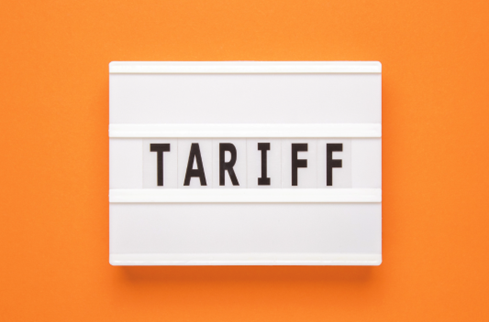Avoiding Costly Mistakes and Staying Ahead of Changes
The Importance of Knowing Trade Compliance Data BEFORE You Buy
In today’s global marketplace, importing goods is a vital component of many businesses. Importers and manufacturers source products internationally to reduce costs, access unique goods, and meet consumer demand. However, the complex nature of trade regulations can turn these potential benefits into significant liabilities if not managed properly. One critical aspect of managing international trade is understanding and complying with ever-changing trade regulations.

Before importing goods, businesses must have a comprehensive understanding of their trade compliance data—including accurate Harmonized Tariff Schedule of the United States (HTSUS) codes, applicable Partner Government Agencies (PGAs), potential anti-dumping/countervailing duties (AD/CVD), Section 301/232 duties, and any relevant Free Trade Agreements (FTAs). Non-compliance or inaccuracies in this data can lead to hefty fines, delayed shipments, increased costs, and even reputational damage. In an environment where trade regulations frequently change with little notice, having access to up-to-date, reliable compliance information is essential.
Let’s explore the key reasons why understanding your trade compliance data is critical and how a modern Software as a Service (SaaS) solution can help importers and manufacturers avoid the significant costs of non-compliance.
1. The Importance of Accurate HTSUS Codes
The HTSUS code is the foundation of trade compliance. It is a 10-digit classification code used to identify products being imported into the United States, and it determines the duty rate, applicable trade agreements, and potential restrictions. Even a slight misclassification of the HTSUS code can have severe consequences:
Inaccurate Duty Rates: A wrong HTSUS code can result in underpaying or overpaying customs duties, leading to unexpected costs. If duties are underpaid, companies may be liable for retroactive payments, penalties, and interest.
- Violations of Trade Regulations: Incorrect classification can also cause importers to inadvertently violate regulations, leading to customs seizures, fines, or even bans on importing specific products.
- Given the complexity of the HTSUS system and the frequent updates, businesses need an automated solution that ensures they are using the correct codes and maintaining compliance with the latest rules.
2. Compliance with Partner Government Agencies (PGAs)
Beyond the HTSUS, many products are regulated by Partner Government Agencies (PGAs), such as the Food and Drug Administration (FDA), the Environmental Protection Agency (EPA), or the Department of Agriculture (USDA). Each of these agencies imposes its own set of regulations on imports, and non-compliance can result in denied entry or destroyed shipments.
For example, importing food products may require compliance with FDA regulations, while electronics may need to meet environmental standards set by the EPA. Ensuring your products meet all applicable PGA requirements is essential for avoiding delays, fines, or rejection at the border.
Trade regulations enforced by PGAs also change frequently, and importers must stay updated on new rules and requirements. A SaaS solution that provides real-time updates on applicable PGAs and their regulations is crucial for maintaining compliance.

3. Managing Anti-Dumping and Countervailing Duties (AD/CVD)
Anti-dumping and countervailing duties (AD/CVD) are additional tariffs imposed to protect domestic industries from unfair competition from foreign producers. AD duties are applied when a product is sold in the U.S. at a price lower than its fair market value, while CVDs are imposed when foreign governments subsidize exports, allowing producers to sell below market value.
For importers, failing to account for AD/CVD on specific products can result in substantial unexpected costs. These duties can be much higher than regular tariffs, and underpaying them can lead to significant penalties and retroactive fees. Importers must know whether their products are subject to AD/CVD before making purchasing decisions to avoid sudden financial liabilities.
4. Understanding Section 301 and 232 Duties
Section 301 and 232 duties are trade remedies that the U.S. government uses to address unfair trade practices or protect national security. Section 301 duties target goods from countries that engage in unfair trade practices, such as China, while Section 232 duties are applied to steel and aluminum imports for national security reasons.
These duties can add significant costs to imported goods, and they are subject to change with little notice as the U.S. government adjusts trade policies. If businesses are unaware of these duties before purchasing goods abroad, they could face significant price increases that impact their profitability. Monitoring Section 301 and 232 duties and ensuring compliance with the latest changes is crucial to avoiding unexpected costs.
5. Leveraging Free Trade Agreements (FTAs)
Free Trade Agreements (FTAs) offer significant benefits to importers by reducing or eliminating tariffs on goods from specific countries. However, to take advantage of FTAs, importers must ensure that their products meet the necessary rules of origin and other compliance requirements.
Failing to properly claim FTA benefits can lead to higher costs, missed savings, and potential legal issues if incorrect claims are made. Importers must verify their eligibility for FTA benefits and ensure accurate documentation to realize cost savings while staying compliant.
The Cost of Non-Compliance and Inaccurate Data
The consequences of non-compliance or inaccurate trade data can be severe. Businesses may face:
- Costly Fines and Penalties: Regulatory agencies can impose significant fines for non-compliance, and these costs can escalate with repeated offenses.
- Delayed Shipments and Supply Chain Disruptions: Incorrect or incomplete compliance data can result in delayed customs clearance, holding up your products and disrupting your supply chain.
- Reputational Damage: Non-compliance can harm your reputation with customers and partners, especially if products are delayed or rejected at the border.
- Retroactive Duties and Costs: Customs authorities can retroactively apply duties, fines, and penalties for past misclassifications or non-compliance, leading to significant financial losses.
- Loss of Credentials: In extreme cases, US Customs authorities can revoke a national brokerage license, which is devastating for both the brokerage as well as the clients that they serve.

The Importance of a SaaS Solution for Trade Compliance
Given the complexity and constant changes in trade regulations, importers and manufacturers need a reliable way to stay compliant. A SaaS trade compliance solution provides real-time access to the latest data, including HTSUS codes, PGA requirements, AD/CVD updates, and Section 301/232 duties. This ensures that businesses have the information they need before making purchasing decisions, minimizing the risk of non-compliance.
In a fast-changing regulatory environment, automation is key. SaaS platforms can automatically check for updates, alert users to changes, and ensure that compliance data is accurate and up to date. This proactive approach helps businesses avoid costly mistakes and stay competitive in the global market.
Why Quickcode?
Choosing Quickcode means partnering with a solution designed to meet the demands of modern supply chain management. Our robust, AI-driven platform ensures your product catalog is always compliant, allowing you to operate with confidence and efficiency.

